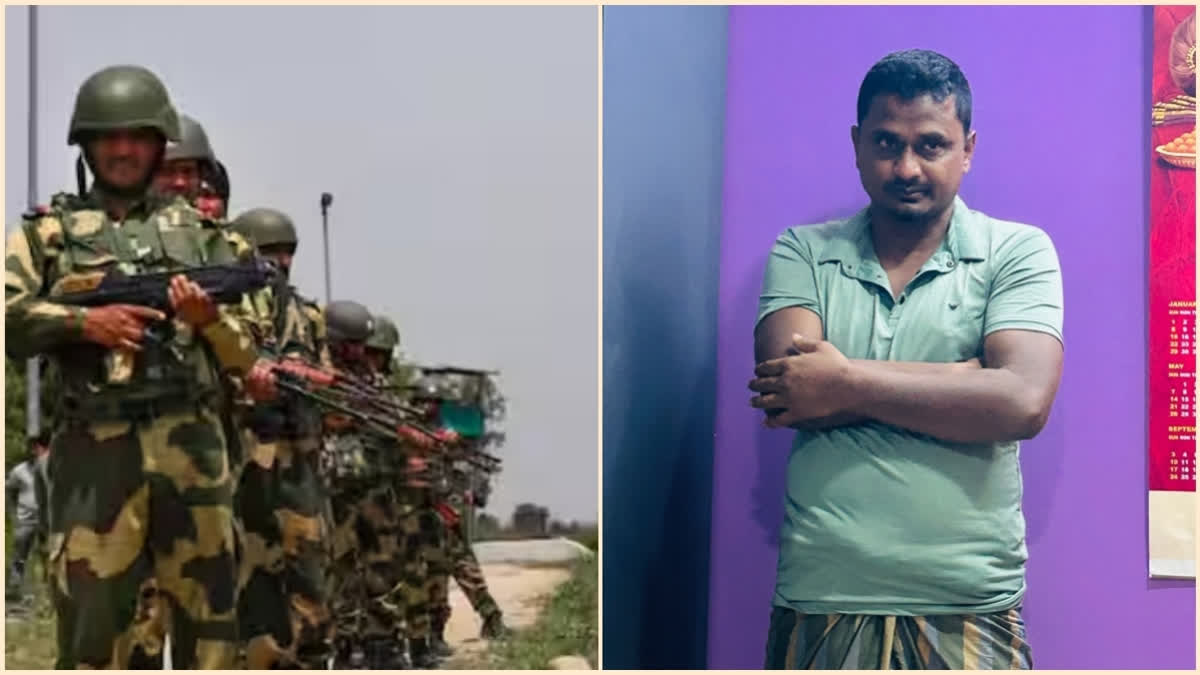Dispur: Dhing Police arrested a Bangladeshi citizen who illegally entered Assam at the Dawki border. The accused, Humayun Kabir, a resident of Sylhet district in Bangladesh, was arrested by the Nagaon police on Wednesday, August 8. Police have seized a mobile phone and two SIM cards from him.
Kabir confessed to entering the Indian state on August 4 by bribing BSF personnel on the border. Nagaon Superintendent of Police (SP), Swapnaneel Deka said that he was staying in the Geruwati area of Nagaon after entering illegally.
"During interrogation, Kabir claimed that he illegally entered India through the international border in Dawki without any valid travel document mainly for cattle trading," the SP said.
The shocking revelation has raised concerns about the vulnerability of the Assam-Bangladesh border. The illegal entry of foreign national into Assam has raised questions about the safety and security of citizens in the North-Eastern state.
Influx of Bangladeshi nationals into Assam amidst the ongoing political turmoil in Bangladesh have already made Indian citizens nervous and fearful. The incident has also highlighted the need for stricter border security measures to prevent illegal entry into Assam.
The incident has sparked widespread concern and outrage, with many demanding stricter action against those involved in illegal border crossing.
Assam Chief Minister Himanta Biswa Sarma reassured the public that strict security measures have successfully halted any unwanted entry. He emphasised that Bangladesh and India are continuously monitoring their border and affirmed that no Bangladeshi national has been able to enter Assam without proper documents.
भारत सरकार ने असम सरकार को निर्देश दिया है कि भारत-बांग्लादेश सीमा को पूरी तरह से सुरक्षित किया जाए। जबसे वहाँ सत्ता परिवर्तन हुआ है, तब से अब तक कोई हमारी सीमा के अंदर नहीं आया है। pic.twitter.com/FqyDBCiFxU
— Himanta Biswa Sarma (@himantabiswa) August 8, 2024
On August 5, former Bangladesh Prime Minister Sheikh Hasina announced her resignation and departed the nation amidst widespread demonstrations over an unpopular job quota system. The violence at the heart of the students' movement claimed the lives of around 500 individuals in Bangladesh, including members of the police force.
Protesters in Bangladesh began the large-scale demonstrations against the contentious government job quota system, but after Hasina's "razakar" comments and the severe police response on demonstrators, the protests quickly turned into a larger movement against the Awami League government.
The Supreme Court's reduction of the quotas put an end to the first rallies, but certain students' demands for Hasina's resignation sparked more turmoil recently.
Read More:



